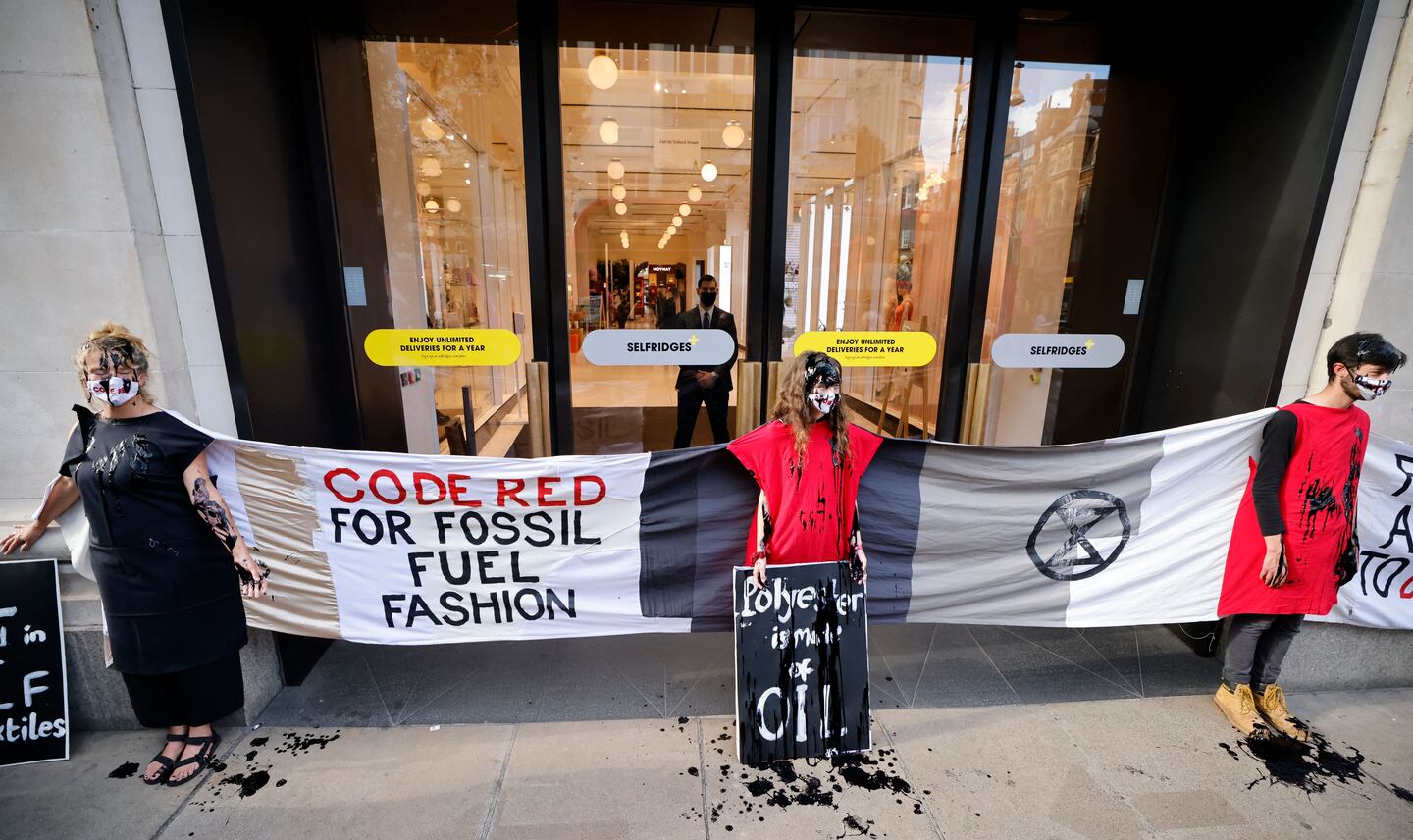
The Business of Fashion
Agenda-setting intelligence, analysis and advice for the global fashion community.

Agenda-setting intelligence, analysis and advice for the global fashion community.

The environmental activist group took to the luxury department store Tuesday amid wider climate change protests across central London. Four protestors doused themselves in oil and glued themselves to the retailer’s entrance, according to commentary on a livestream of the event posted to Extinction Rebellion UK’s Facebook page.
Speakers at the protest say Selfridges was selected due to its owner the Weston family’s ties to European fast fashion giant Primark, as well as the department store’s stocking of brands that rely heavily on synthetic, oil-based fibres.
“It’s time to end fossil fashion. It’s so last season, it’s so last decade,” said George Harding-Rolls, corporate campaigner at environmental foundation Changing Markets, during a speech at the event.
Selfridges has been contacted for comment.
ADVERTISEMENT
Learn more:
What Fashion Needs to Know About This Week’s UN Climate Report
The world’s top climate scientists issued a stark warning on the rapid rise of global temperatures this week. BoF breaks down the key takeaways and explains what the industry can do about it.
Europe’s Parliament has signed off rules that will make brands more accountable for what happens in their supply chains, ban products made with forced labour and set new environmental standards for the design and disposal of products.
Fashion’s biggest sustainable cotton certifier said it found no evidence of non-compliance at farms covered by its standard, but acknowledged weaknesses in its monitoring approach.
As they move to protect their intellectual property, big brands are coming into conflict with a growing class of up-and-coming designers working with refashioned designer gear.
The industry needs to ditch its reliance on fossil-fuel-based materials like polyester in order to meet climate targets, according to a new report from Textile Exchange.